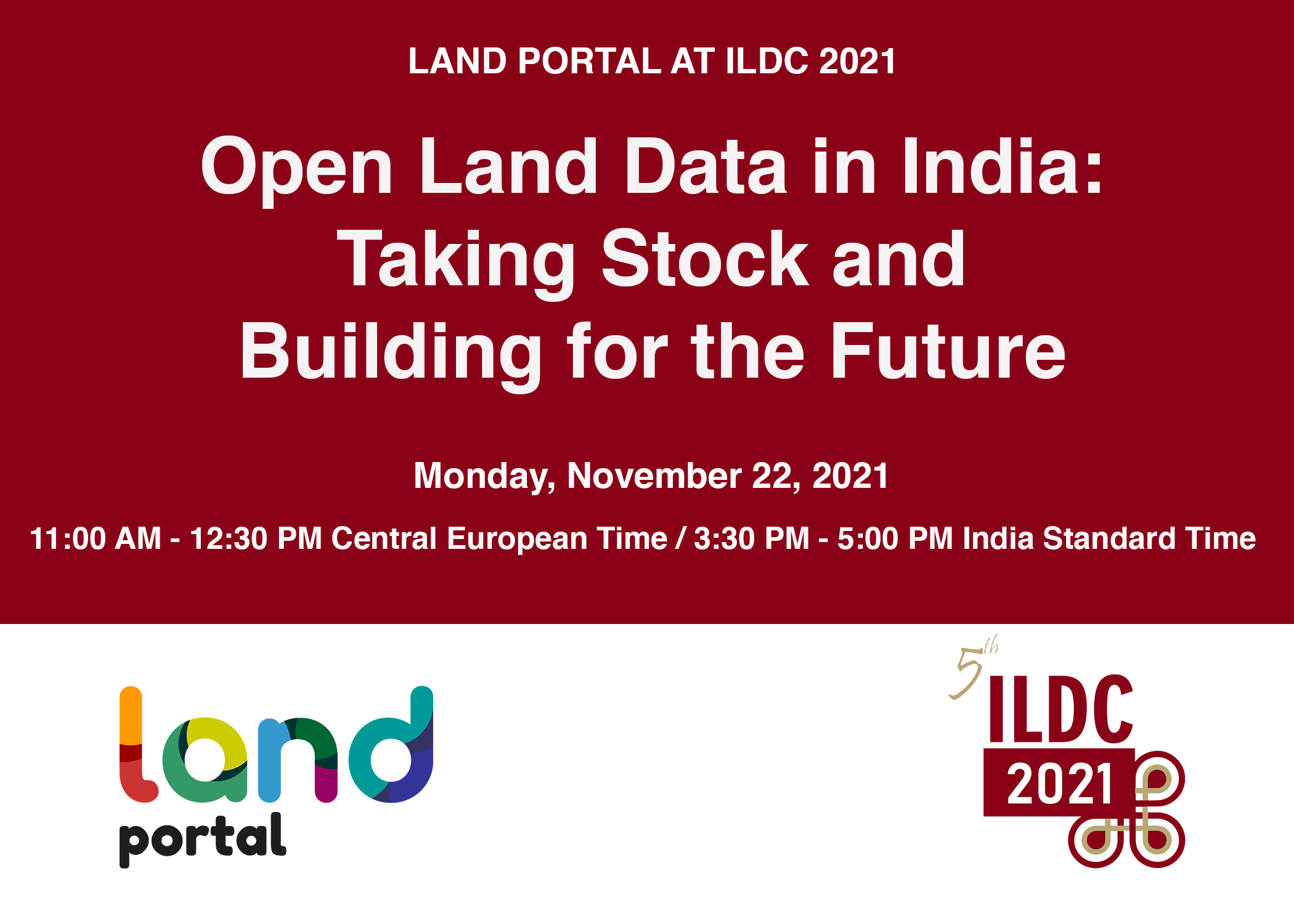REGISTER HERE:
https://landtenurehub.org/registrationildc2021/(link is external)
November 22, 2021
11:00 AM - 12:30 PM Central European Time / 3:30 - 5:00 PM India Standard Time
Moderator

Laura Meggiolaro
Panelists

Pranab
Choudhury

Charu
Jain

Kumar
Sambhav

Shalmoli
Halde

Charl-Thom
Bayer
Moderator:
Laura Meggiolaro, Land Portal Foundation
Speakers:
Pranab Choudhury, Center for Land Governance
Dr. Charu Jain, National Council of Applied Economic Research
Kumar Sambhav, Land Conflict Watch
Shalmoli Halder, Omidyar India
Dr. Charl-Thom Bayer, Land Portal Foundation
This session will examine and take stock of the progress India has made with regards to opening up land data, as well as to consider what progress is needed going forward.
In 2005 India promulgated the Right to Information Act, No. 22 of 2005 and set the stage for “the right to information for citizens to secure access to information under control of public authorities” in order to improve transparency and accountability. Recognising the value of public data and the benefits that may accrue from reuse of data, there followed the Open Data Policy (NDSAP) in 2012 providing a comprehensive framework and standards for data sharing by government agencies, including in machine readable formats. While the government is to be lauded for this progressive policy stance, the policies have not always been equally supported in practice at the National, State and Local Level according to critics. Driven by the demand for services and technological innovations volunteer organisations have gone on to make important contributions to mapping and provide land related data. Despite these efforts India is ready for innovation to drive development that is not being met by the current rate at which data is being made available.
Data and its governance are key to assessing and monitoring land governance. Good land governance should be efficient, effective and transparent, ensuring participatory processes and outcomes that are equitable and secure. In order to stem the impact of COVID-19. The climate crisis and intertwined land governance crises, land-related data and information can provide the support needed to monitor key indices, especially those related to progress on the SDGs such as women’s ownership of land or perceptions of tenure security, among others.
In contrast to other global issues, such as climate change, which no single actor can prevent, most land governance issues can be solved within a state. This means that individual governments are in the driver's seat when it comes to responsible land governance. And this is precisely why the Land Portal Foundation and Open Data Charter joined efforts this year to create an Open Up Guide on Land Governance. The Open Up Guide is the first of its kind playbook for governments with mandates for or an interest in making their land governance data open and available for others to re-use. The Guide outlines key land governance data types, how they may be collected, stored, and published for improving land governance and transparency.
Land ownership data is consistently ranked lowest on both the Global Open Data Index and the Open Data Barometer. Each year this data is highlighted as the least likely to be open. The Open Up Guide on Land Governance is directed at governments because they control most of the land data in the country.
This session will identify the progress that India has made with regards to open land data and how those gains can be protected. The discussion will deliberate on the possible next steps for improving open data access in India. It will examine the role of the Open Up Guide on Land Governance as a tool for opening land-data governance data. Finally the panel will discuss how such tools can be used to untangle and ameliorate the damage caused by the lack of transparency and corruption fueled by the COVID-19 crisis, and how open land-data governance systems can serve as a tool to fight poverty and ultimately increase food security.

